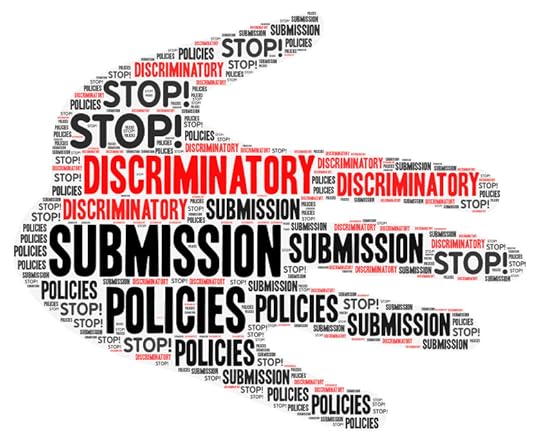Common sense beginning to prevail on publishers’ submission pages.

About two years ago, I began submitting my short fiction and poetry to online publications and anthologies. The plan was to see if I could build a portfolio of published work that might enhance my chances at attracting a traditional publisher for my next novel. The previous thirteen had failed to do so and were eventually self-published.
Almost immediately, I was disturbed by what appeared to be a bias in favour of marginalized authors on the submission pages of publications. In some cases, it was articulated as encouragement and support for “historically underrepresented communities”. Others went as far as suggesting they were “actively seeking” or “looking to engage” marginalized writers, while a few declared they were committed to correct “the historical and societal imbalance of representation in literature” and, furthermore, “If you require an accommodation to submit your manuscript, please contact us.” In some cases, fees were waived and a special submission queue available for authors who identified as marginalized.
The definition of marginalized was confounding and seemed to depend on the degree of moral validation the publisher needed.
Not only did these statements appeared to be blatantly discriminatory they were also misdirected, demeaning the talent of those they attested to want to help as if marginalization was an impediment to talent.
When I approached some of these publishers and asked them to specifically explain what these statements meant the few who deemed to answer were ambivalent.
Simultaneously, I noticed a disproportionate number (to their percentage of the population) of prestigious literary awards going to marginalized writers.
For example, of the twenty authors shortlisted for the 2022 Giller Prize, the richest prize in Canadian literature, nine, or forty-five percent were BIPOC while six, or thirty percent were white. If represented proportionately by their percentage of Canada’s overall population 4.6 BIPOCs would make the shortlist as opposed to 14 white authors. The shortfall of twenty-five percent was made up of Asian (non-white) authors.
Then there were the 30 stories longlisted in that year’s Canada Writes Short Story Contest of which eleven of the authors were non-white authors (36%), six percent greater than their representative population (Stats Can say 30.2% of the population identify as non-white).
This didn’t sound like under-representation to me.
It culminated last year, when the 2024 Governor General’s Literary Awards finalists in fiction were all authored or co-authored by marginalized authors as were all the finalists in the 2024 City of Vancouver Book Prize.
When I brought this subject up with other writers on social media or individually, I was cautioned, criticized and ultimately cancelled. No one felt the way I did, or if they did, were too intimidated to speak out about it.
Despite the lack support or even acknowledgement of this issue, I decided that when confronted with a discriminatory message on a submission page I would do the following:
– not submit to that publication,
– call out the publications for the discriminatory message and ask for its removal,
– advocate on behalf of blind judging – editors having no information about the author (including their name) and judging the submission is on its creative merit alone.
At the time, this severely restricted the number of publications I could (morally) submit to.
Gradually, I’m beginning to see a change in attitude. More publications are now stating they accept work from all authors regardless of race or gender and double-down by implementing blind judging.
Even the CBC Short Story Contest is coming around. This year their long list of 32 finalists, usually heavily weighted in favour of marginalized authors, has only six.
I’d like to take credit (even a little) for this shift, but you only have to look around to realize the zeitgeist of the times is changing. My hope is it will find a commonsense equilibrium without over correcting.
In the meantime, I now have more publications to submit my writing to.
#writers #authors #discrimination #submissionpagesdiscriminating #BIPOCs #marginalizedauthors #affirmativeaction #publishersdiscriminating #blindjudging #unfairadvantage



